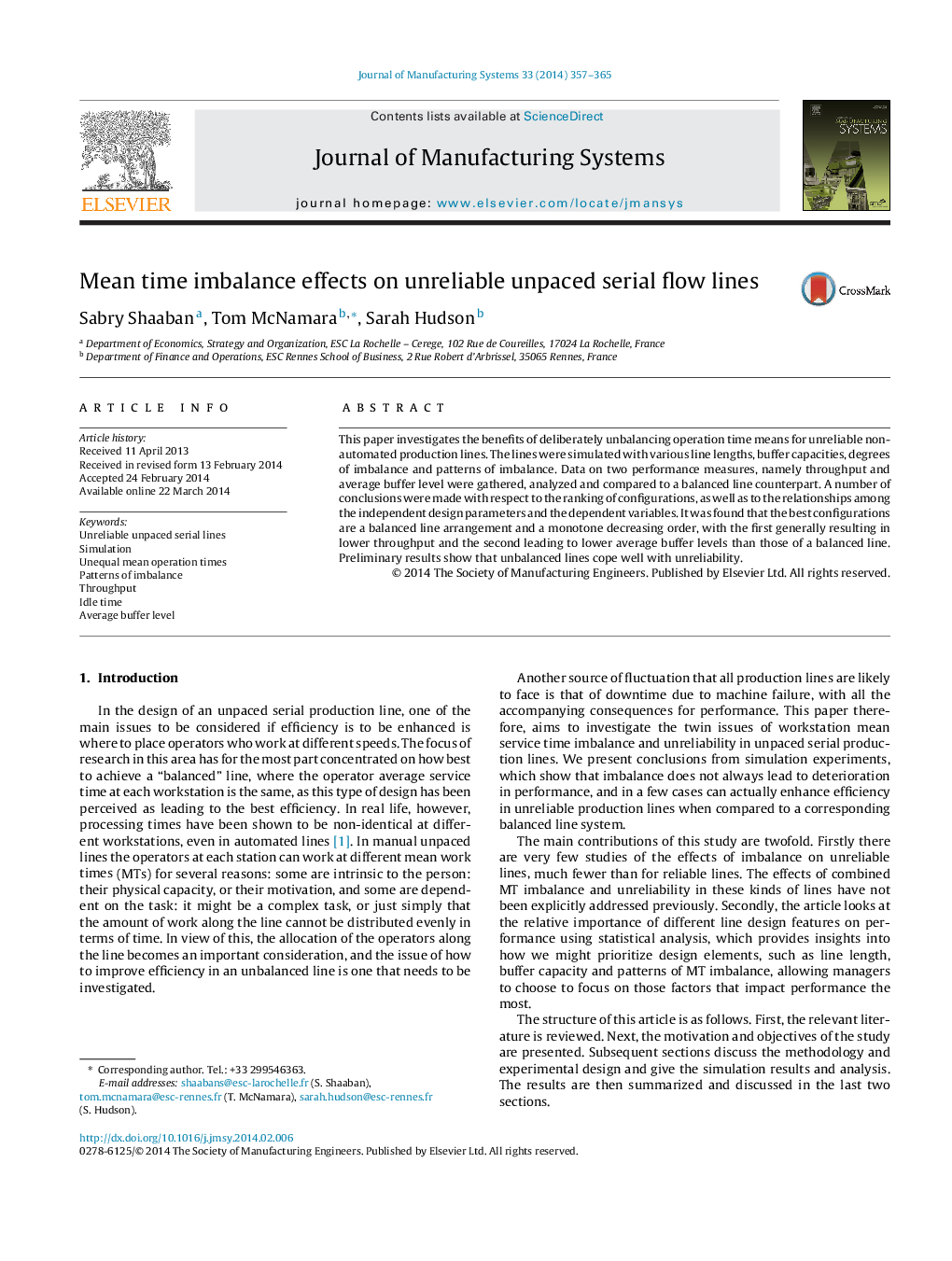| Article ID | Journal | Published Year | Pages | File Type |
|---|---|---|---|---|
| 1697460 | Journal of Manufacturing Systems | 2014 | 9 Pages |
•The operating behaviour of unreliable unpaced production lines with unequal mean processing times was simulated.•Different patterns, as well as degrees, of imbalance were employed.•A number of configurations of unbalance were found that resulted in increased throughput, lower idle times and lower average buffer levels.•The possible improvements, when taken over the operating life of a production line, could result in substantial savings.
This paper investigates the benefits of deliberately unbalancing operation time means for unreliable non-automated production lines. The lines were simulated with various line lengths, buffer capacities, degrees of imbalance and patterns of imbalance. Data on two performance measures, namely throughput and average buffer level were gathered, analyzed and compared to a balanced line counterpart. A number of conclusions were made with respect to the ranking of configurations, as well as to the relationships among the independent design parameters and the dependent variables. It was found that the best configurations are a balanced line arrangement and a monotone decreasing order, with the first generally resulting in lower throughput and the second leading to lower average buffer levels than those of a balanced line. Preliminary results show that unbalanced lines cope well with unreliability.
